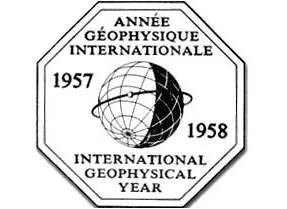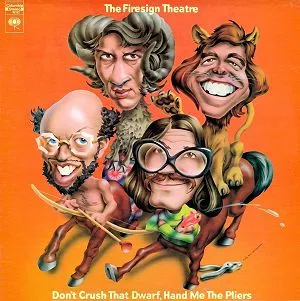In one last late night look at a few news sites for a sense of what Friday morning's stories might be, I happened on a live TV feed from Stockholm, announcing the Nobel Peace Prize. It went to an organization, the International Campaign to Abolish Nuclear Weapons, known as ICAN.
By the time I checked my usual list of news sites on late Friday afternoon, there was no trace of the story on most of their front pages, including the NY Times and Washington Post, nor on the Google aggregator. The Guardian, which had followed the announcement with a live blog for its UK and European readers, had its story buried deep in the front page weeds. Even the BBC, which had room for butterflies and pandas, didn't front page it.
The only US site I saw that had a story was the New Yorker, with Robin Wright's report entitled The Nobel Peace Prize Goes to Anti-Bomb Idealists. Though the piece itself is informative, the tone of the headline and the opening sentence ("The dreamers won") seem dismissive. It is after all an organization that works with nearly 500 other non-governmental groups in 101 countries, and scored a success with a UN treaty banning nuclear weapons, currently being ratified by the more than 120 nations that voted for it. "Anti-Bomb Activists" might seem more appropriate and less condescending. But then again, ICAN's budget is a meager one million dollars a year.
If the sneer that seems implied is discounted, the active representation of this ideal is precisely why the group deserves the award. They are advocating for an idea, a Big Idea, and it is with such big ideas that nearly every step forward in civilization has begun.
The ideas come first, and then stated in some major way, and a society embraces them. In American history, it was the bold idea that we are all created equal, appearing in the Declaration of Independence as the primary rationale for a new and self-governing nation.
Once these ideas are so embraced, they become accepted standards that seem to have always existed. They also make hypocrisy possible when people and nations don't live up to them and businesses find creative ways of circumventing them, which leads to outrage, condescension and cynicism, as well as activism and change.
That we are all equal under the law was not a given, not even an idea or an ideal, for much of western history alone. Now we have arguments about whether lots of money makes you more equal than others even in court, but we wouldn't have that or any other argument unless the principle existed, and was enshrined in our highest laws.
Slavery was a legal and accepted business practice for much of American history. At one time, the idea that it is wrong was a new idea that was met with fierce opposition as well as condescension. It was outlawed in England, and in the midst of a war in which it was the primary issue, the Emancipation Proclamation began the process of ending it in America.
A great deal has followed from that idea, based on human equality, and it has echoed through our age, from civil rights to the end of legal discrimination based on sexual orientation. The idea has not been fully applied, obvious retrenchment is being attempted today, just as new forms of slavery have arisen and spread all over the world. But slavery and racism and other forms of discrimination are no longer accepted as legitimate. They are societially shameful.
In the 20th century a new idea painfully emerged: the world. International treaties began to codify rights and relationships among nations not based on empire or any coercion. An international organization formed and for the first time, lasted and grew to a global organization: the United Nations. It promoted some awfully big ideas.
One was universal human rights, beyond the borders of any one nation. Together with others in England, H.G. Wells, who made the case for world government throughout his long career, devoted the last years of his life to the cause of codifying such rights--which had never been done before--and insisting that the international body that would be formed at the end of World War II formally adopt them.
Others (among them, Eleanor Roosevelt) negotiated such a document, and the Universal Declaration of Human Rights was considered by the UN in 1946, its first year of existence, and formally adopted in 1948. It is the basis for further codifications and declarations, and of UN policies and actions, such as those that the UN and member states took to end apartheid in South Africa, and in so doing, end that idea as a normal right of the state.
But as Berit Reiss-Andersen, the chair of the Norwegian Nobel Committee, noted in awarding the Peace Prize to ICAN on Friday morning, one of the UN's very first resolutions in 1946 was to establish a commission to deal with the problems of atomic energy, including nuclear weapons. The historic treaty in the 1960s banning atmospheric nuclear tests led to a complete cessation of such tests. And as Reiss-Andersen also noted the non-proliferation treaties of the 1970s committed nuclear nations to eventual nuclear disarmament.
The 2017 UN resolution legally binds the signatories to prohibit nuclear weapons completely, with 123 nations voting in favor of it. None of the nuclear nations or their close allies were among them, but the idea has been stated and supported by a majority of world governments. It means something a bit more than a dream. It sets a standard that every nation must deal with. Nuclear weapons, like chemical weapons, are outside the norms of current civilization.
Such ideas, even when officially stated at the highest levels, and even when enshrined in law, can be violated, and often are. But we don't call laws against murder no more than addled idealism by naive dreamers just because people continue to kill each other. Not even when they get away with it.
Another big example of a big idea is war itself. Louis Menand wrote a New Yorker piece called What Happens When War is Outlawed. It begins with a little known international treaty, eventually signed by every significant nation in the world, that outlawed war between nations as an instrument of policy. It was the General Treaty for the Renunciation of War.
It has been completely lost to history, Menand notes, principally because the last nations signed it in 1934, just a few years before the largest war in human history began. So once again, at best, an embarrassingly naive expression of misplaced idealism (like the celebrated 1939 New York Worlds Fair), if not cynical to begin with. A hard-headed realist Cold War foreign policy expert called it "Childish, just childish." Certainly ineffective.
But was it really? Menand points out:
"And yet since 1945 nations have gone to war against other nations very few times. When they have, most of the rest of the world has regarded the war as illegitimate and, frequently, has organized to sanction or otherwise punish the aggressor. In only a handful of mostly minor cases since 1945—the Russian seizure of Crimea in 2014 being a flagrant exception—has a nation been able to hold on to territory it acquired by conquest."
The rest of the piece goes into various contributing reasons why this has been so, the most recent of which is globalization, when international trade is too essential to disrupt with warfare. But my conclusion would include the very fact of the spread of the big idea represented by that treaty outlawing war, which is that war is no longer considered to be a normal, legitimate instrument of policy. Whereas for centuries before, it was.
The latest Big Idea to emerge in a big way was expressed in the Paris climate agreement. For the first time in human history, official representatives of nearly every human on the planet agreed to take responsibility for fixing what humanity had done to destroy that planet.
Like every other such statement, the actual accord may be flawed and not immediately effective, and backsliding will occur. But the response to its rejection by the current White House incumbent by other nations as well as states, cities, businesses and citizens of the US shows it is still a powerful Big Idea, inspiring passion and determination.
The idea is now Big, and humanity has agreed on it. It may well happen that the damage to the planet will doom civilization and the Earth as we know it before humanity can fully live up to this idea. But even in the event of that ultimate tragedy, there is at least this expression of the best in humanity and human civilization.
We have enough evidence of human weakness and evil to tempt all of us to consider these as the essence of human nature. We have to remind ourselves that, just as individual humans do exhibit such contrary traits as goodness, intelligence, courage, kindness, fairness and self-sacrifice, human civilization has had some awfully good Big Ideas and they have changed things for the better. The Nobel Peace Prize shines a light on one of the most important of those Big Ideas today.
Starting With Stoppard
-
Tom Stoppard died in November 2025. From his first success in the late
1960s--*Rosencrantz and Gildenstern Are Dead-*- to now, I followed his
career and...
3 weeks ago







































